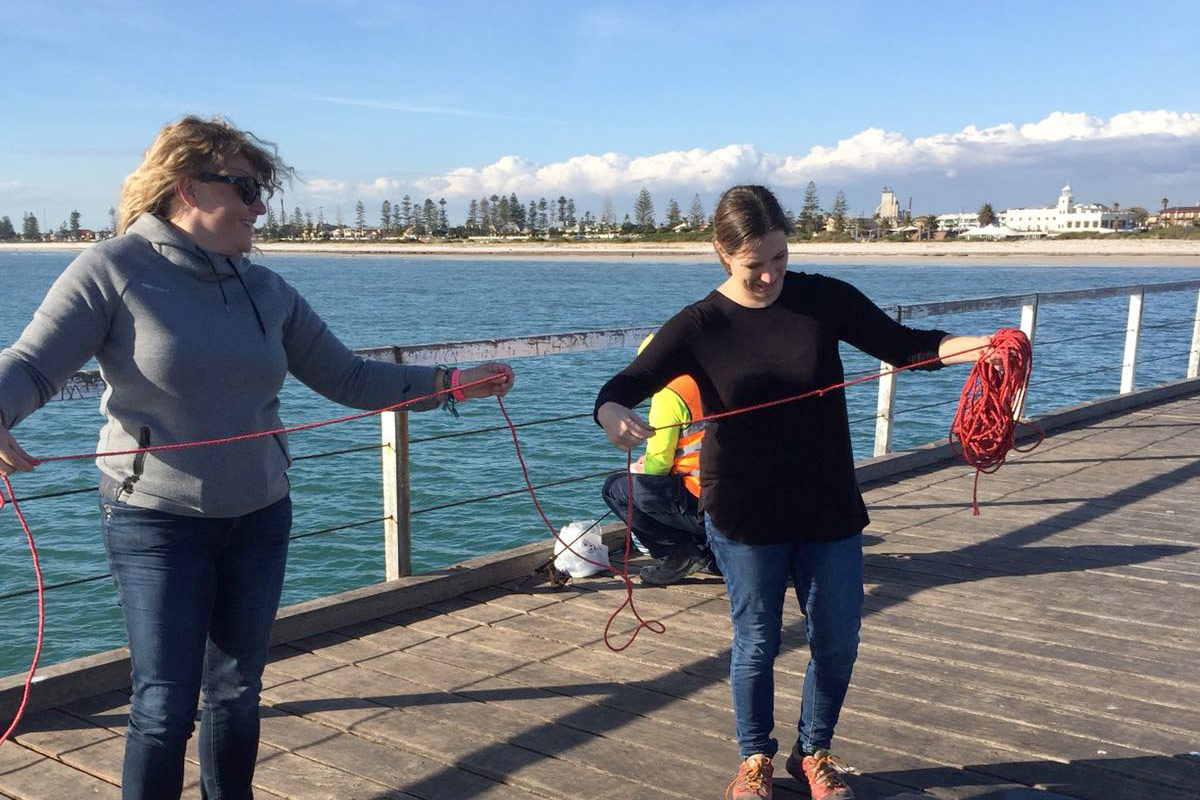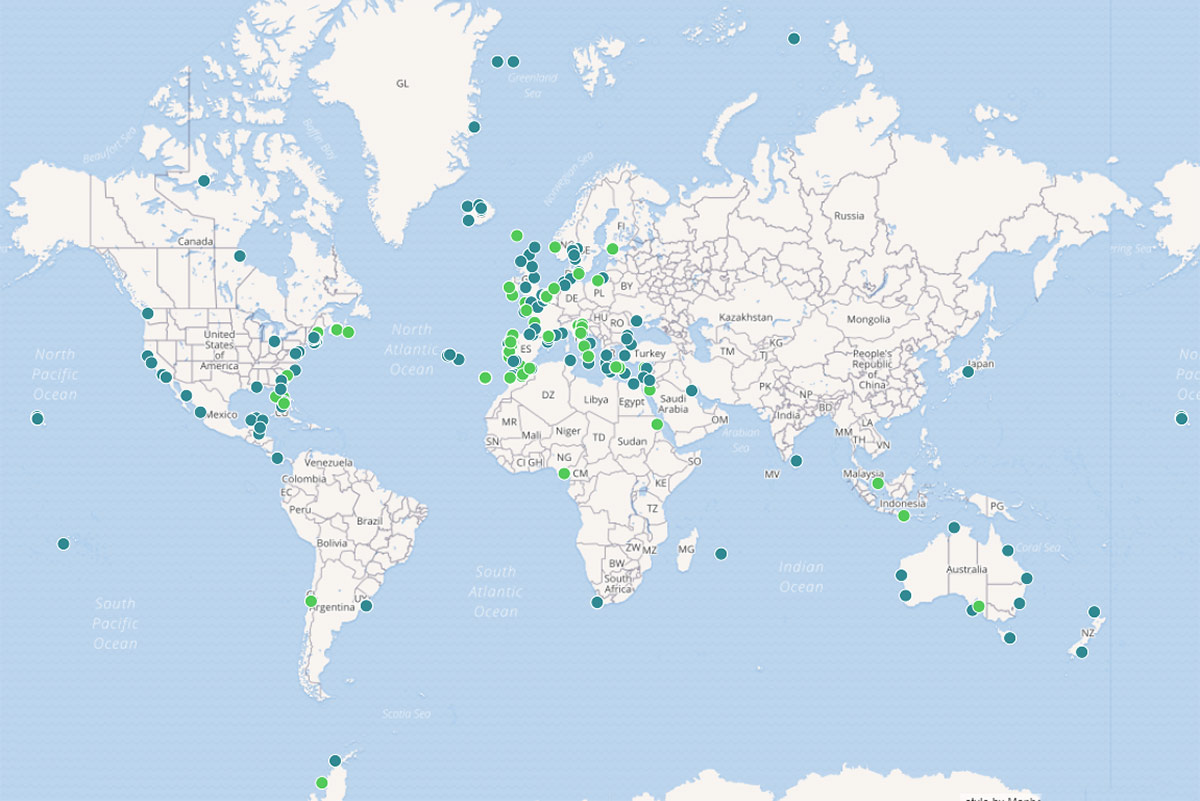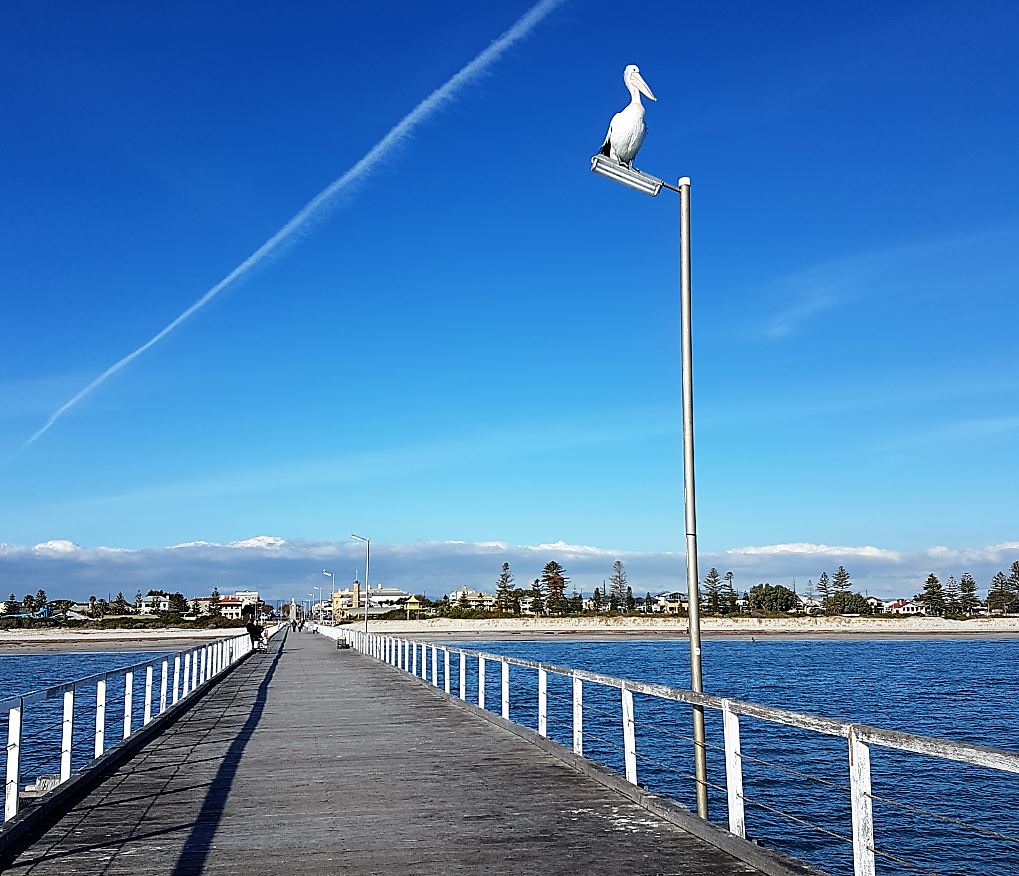
Water samples taken off Semaphore Jetty are en route to Greece after Flinders University marine biologists took part in the global Ocean Sampling Day.
Ocean Sampling Day (21 June) is an annual simultaneous sampling campaign of the world’s oceans, supported by the European Marine Biological Research Centre (EMBRC-ERIC) and aimed at providing researchers with valuable insights into the marine environment.
Flinders was one of more than 100 organisations, representing every continent on Earth, to take samples on the day.
The precious cargo is being sent to Crete, Greece, where The Hellenic Centre for Marine Research will sequence the samples for 16S and 18S rDNA (meta-barcoding).
The results become a valuable reference data set – a snapshot in time of our oceans in 2018 – for generations of research in coming decades.
Flinders Associate Professor in Biological Oceanography Sophie Leterme says Ocean Sampling Day is important because it provides a large-scale assessment of the oceans’ microbiome through genetic and environmental analyses, to study how environmental conditions affect oceanic life.

“With an estimated 104 -106 cells per millilitre, marine microbes are ubiquitous in the ocean,” says Associate Professor Leterme.
“They are the base of the marine food web and drive ocean life, but also respond to changes in the environment, including climate change, making them great bio-indicators of ocean health.
“Think about how the human microbiome is becoming increasingly significant in monitoring human health. There are still many unknowns about the ocean microbiome, but we know that it’s involved in all significant ocean processes, so its documentation must be integrated into monitoring the health of marine ecosystems.”
Associate Professor Leterme says the global campaign for Ocean Sampling Day “generates the largest standardised microbial data set in a single day, allowing us to assess the diversity of microbial communities as a function of environmental conditions”.
She says this invaluable source of information on how anthropogenic activities in coastal oceans may affect marine life has the potential to add millions of new genes to the Ocean Microbial-Reference Gene Catalog and identify “hotspots of novelty” in terms of gene function.
“Increasing access availability and knowledge of marine microbes can facilitate worldwide collaborations for a better understanding of the global health of marine ecosystems,” she says.
Associate Professor Leterme was joined by College of Science and Engineering Research Associate Dr Melissa Oxley and Marine Biology and Aquaculture Honours student Elise Tuuri for the water sampling at Semaphore.


